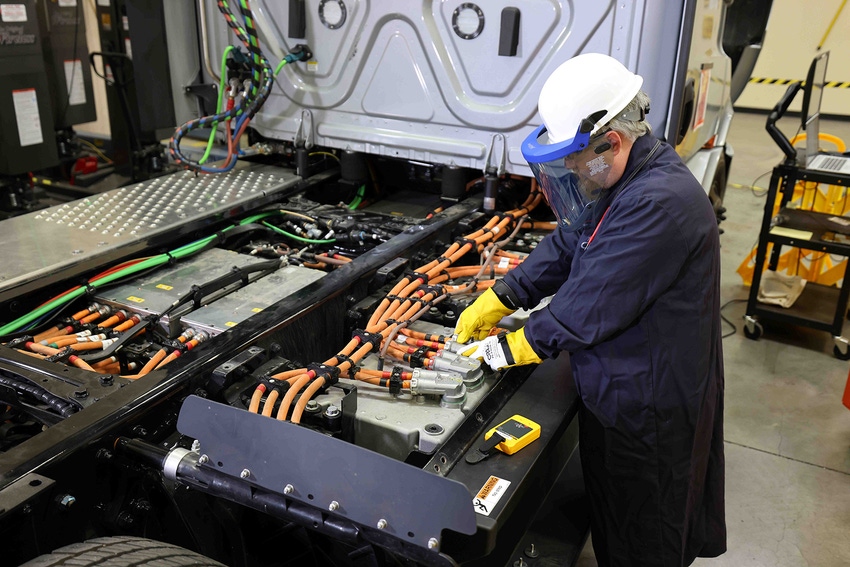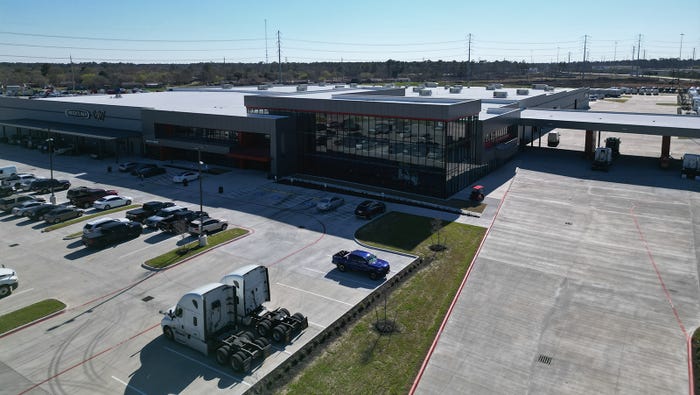DTNA’s Certification Program Will Drive Green Education
Daimler Truck North America’s BEV Dealer Certification Program prepares dealers to prepare uncertain BEV drivers.

Daimler Truck North America, LLC (DTNA) has announced a comprehensive BEV Dealer Certification Program, building upon the success of its Elite Support program. This certified network of Freightliner dealers will take center stage as educators on the intricacies of electric mobility. Here’s some context as to why that’s important.
The dealer’s role as educator
The shift to sustainable energy is pivotal for the planet's future, and the adoption of battery-electric vehicles is a crucial component. (But you knew that.) Dealerships selling electric vehicles serve as frontline educators, uniquely positioned to inform and inspire the public about the importance of this transition.
By offering insights into the environmental benefits, cost savings, and ease of integration into daily life—as well as sharing the specific knowledge of how to use and maintain EVS—these dealers become ambassadors for a sustainable tomorrow, fostering a collective understanding that empowers individuals to make eco-conscious choices. In the drive towards a greener world, vehicle dealers wield significant influence in shaping a more sustainable and informed future.
DTNA’s certification program
That’s the context to keep in mind as Daimler Truck North America, LLC (DTNA) announces its new Battery-Electric Vehicle (BEV) Dealer Certification Program. This initiative positions truck dealers as educators on the complexities of battery-electric vehicles, marking a significant step towards reshaping the landscape of sustainable trucking.

Houston Freightliner Western Star, the largest dealership in the DTNA service network. Credit: DTNA
Building upon the success of the Elite Support program, the BEV Dealer Certification program is a comprehensive guide designed to assist customers in navigating the uncharted waters of emissions-free driving. Covering every aspect, from infrastructure optimization with Detroit eConsulting to the meticulous maintenance of electric trucks, the certification program spans over 75 specific criteria across four crucial areas.
Safety:
Comprehensive safety policies and training
Frontline safety contact person
Equipped with high-voltage safety-specific equipment
Charging Infrastructure:
Deployment of commercial vehicle charging infrastructure
Access to stationary or mobile charging solutions
Infrastructure and vehicle deployment readiness activities backed by expert-level support from the Detroit eConsulting team
Dealership Infrastructure:
Dedicated BEV service bays and battery storage space
Key parts stocking
Installation of safety signage
Training:
BEV training and resources covering all aspects of dealership business, including sales, service, and parts
Drew Backeberg, senior vice president of aftermarket at DTNA, emphasized the broader impact of a BEV-certified dealer network. "For customers owning or purchasing an electric vehicle in the near term, it is likely their first experience with electrification in the heavy-duty truck space. We see it as our responsibility to support them on their journey."
Growing the number of certified dealerships
Eight dealerships have successfully completed the rigorous certification process, with the number set to double in the coming weeks. With the proliferation of electric vehicles throughout North America, DTNA aims to rapidly expand the BEV Dealer Certification throughout the Freightliner dealer network, envisioning 100 certified dealer locations by 2025.
John Hopkins, co-chair of the Freightliner Dealer Council, expressed excitement about the collaboration that led to the introduction of the BEV Dealer Certification Program, stating that it will "become the model for our entire industry, providing a safe and world-class customer experience for our battery-electric truck customers."
As DTNA continues to pioneer advancements in electric mobility, the BEV Dealer Certification Program may signal a pivotal shift in how truck dealerships see their role: Not just providers of vehicles but also indispensable educators, guiding the public through the intricate world of battery-electric vehicles and shaping a future of sustainable transportation on our roads.
About the Author(s)
You May Also Like





